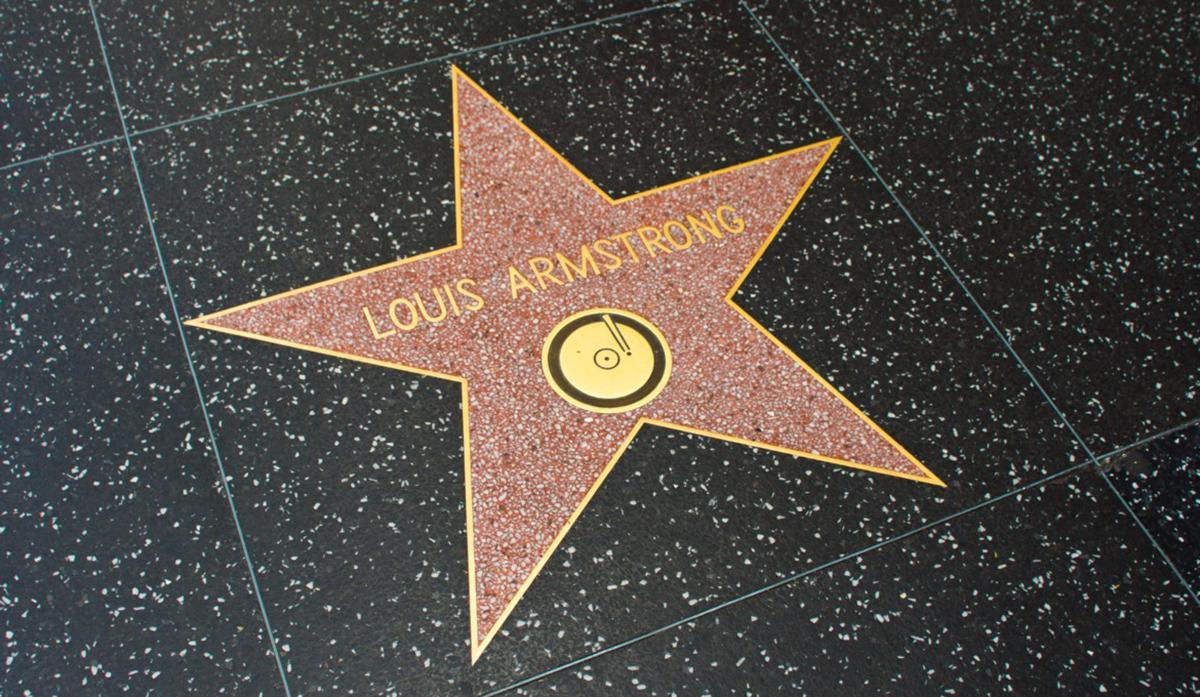Interesting facts about Louis Armstrong
Содержание
Louis Armstrong is the most outstanding jazz musician in the history of music. He revolutionised the way he played the trumpet in a unique way. Musicians have always wanted to be like Armstrong, looked up to his playing, tried to imitate him, but all of them were annoyed by the fact that they could not understand the secret of his genius: how he manages to take such high and unique sounds. His playing is a legend and he is a Legend. This is a sample of a Man who managed to change this Magnificent World, to fill it with magical extraterrestrial sounds of his trumpet... to make the world around him a little better!
Top 9 facts about Louis Armstrong!
1. A Jewish immigrant family helped him buy his first trumpet.
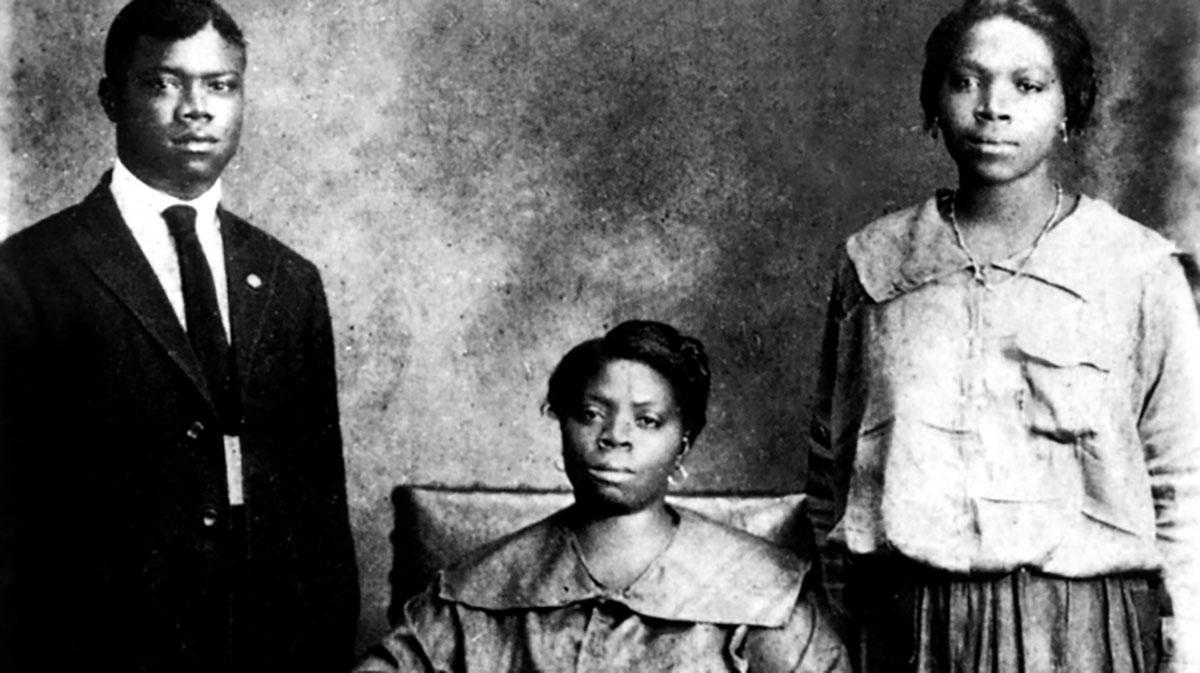
Armstrong was born on 4 August 1901 in one of the poorest areas of New Orleans, nicknamed "The Battlefield". His father left the family when Armstrong was still a child, and his teenage mother often had to resort to prostitution to make ends meet. Young Louis was cared for by his grandmother for most of his childhood. His second home was with a Lithuanian-Jewish family, this one the Karnofsky family, who hired him to do a variety of jobs for their family business. Jazzman would later write that the Karnofskys treated him as if he were their own child, often giving him food and even lending him money, including to buy his first instrument, a $5 cornet (he would not begin playing the trumpet until 1926).
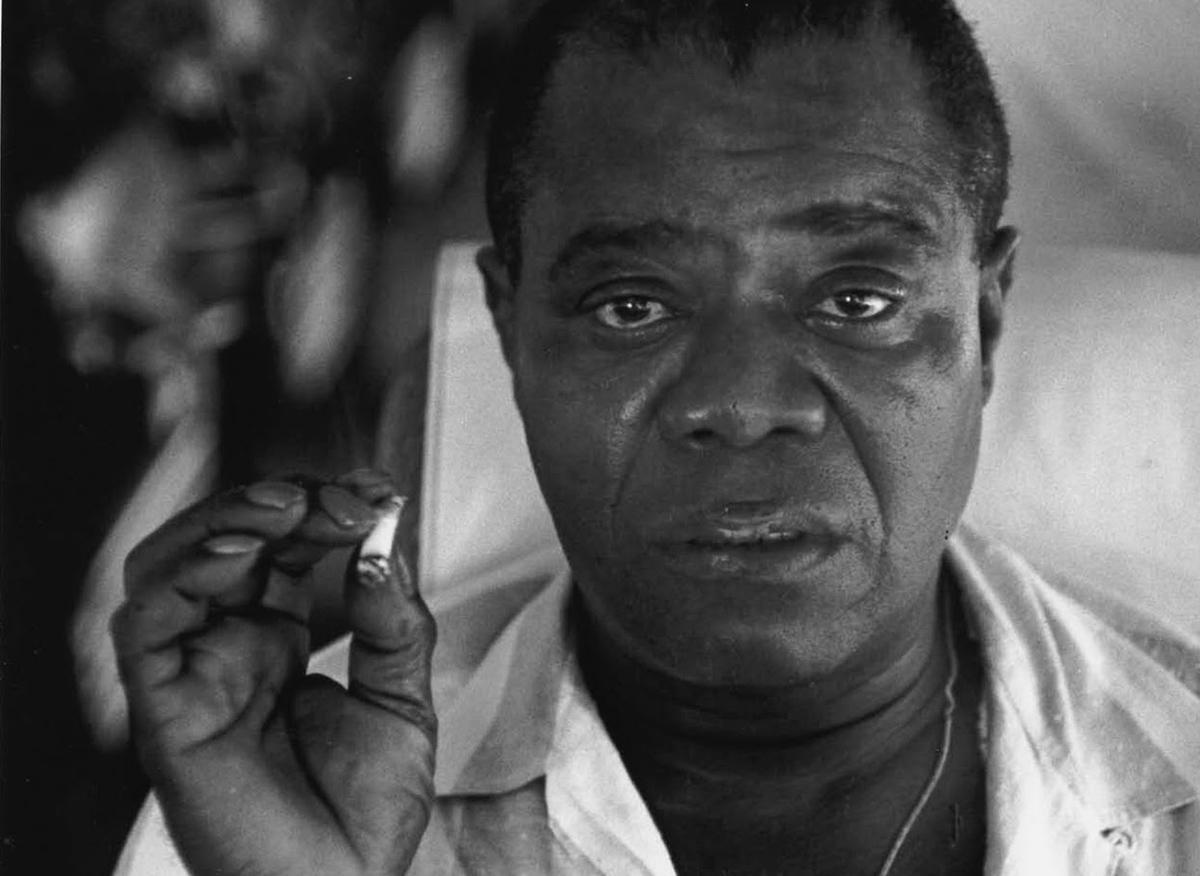
2. Armstrong first received his musical training in a juvenile prison.
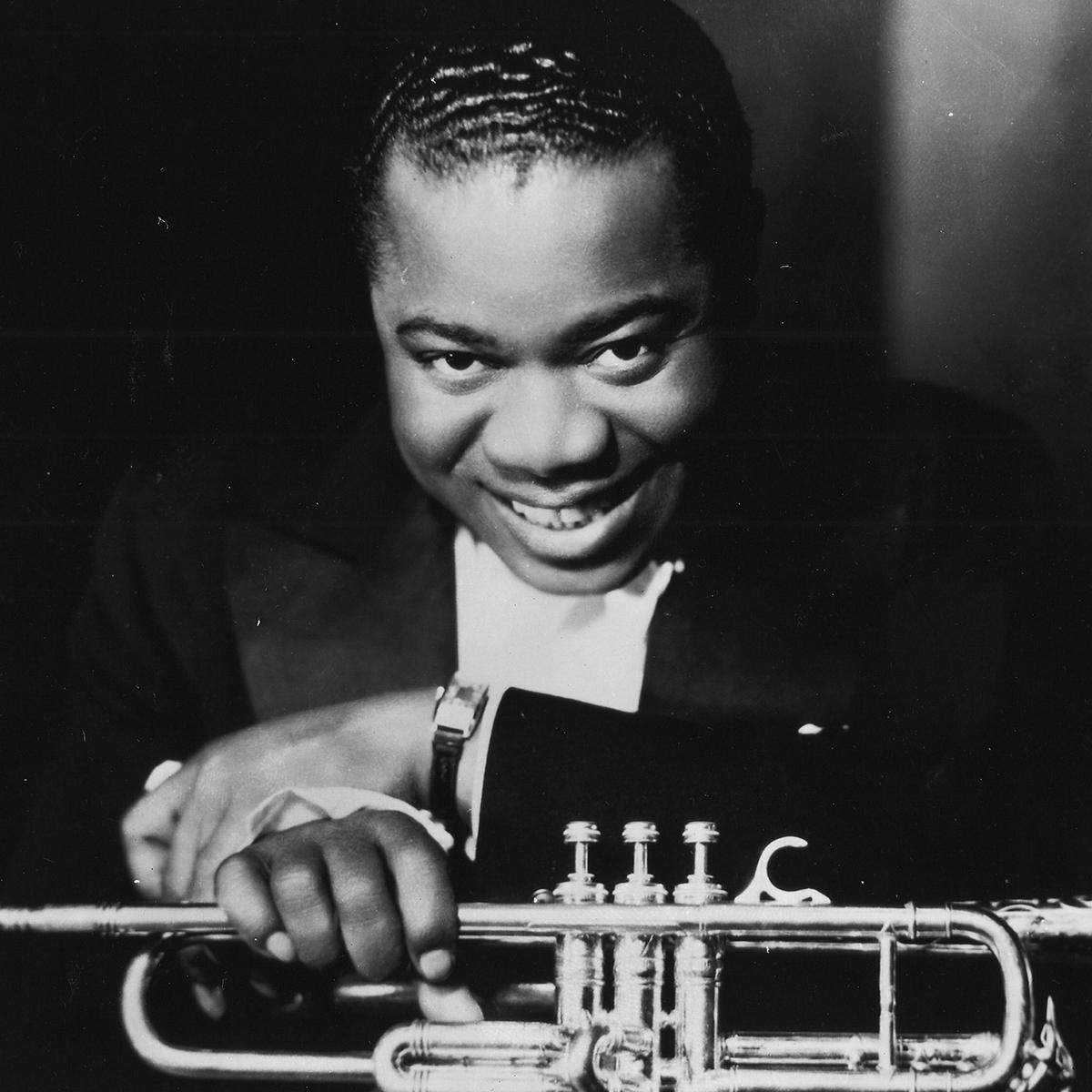
Armstrong spent his childhood on the streets. He had no education, including music, until the age of 11 when he was arrested for firing a gun during a New Year's Eve celebration. He served his sentence in a place called the Coloured Home for Street Boys, afterwards Armstrong claimed "I married music". During his 18-month sentence, he learnt to play the bugle and cornet. His teacher was Peter Davies. We know well how that story ended: he became a star performer in his brass band. Armstrong continually honed his skills. In 1919, he had one of his most breakthrough concerts with a "river" band led by pianist Fate Marable.
https://youtu.be/CWzrABouyeE
"I was always convinced that my success was rooted in the time when I was arrested as a kid," Louis would later recall. "All because, back then, I had to quit running and start studying something. And of course, the thing I studied the most was music."
3- My wife helped launch my solo career.
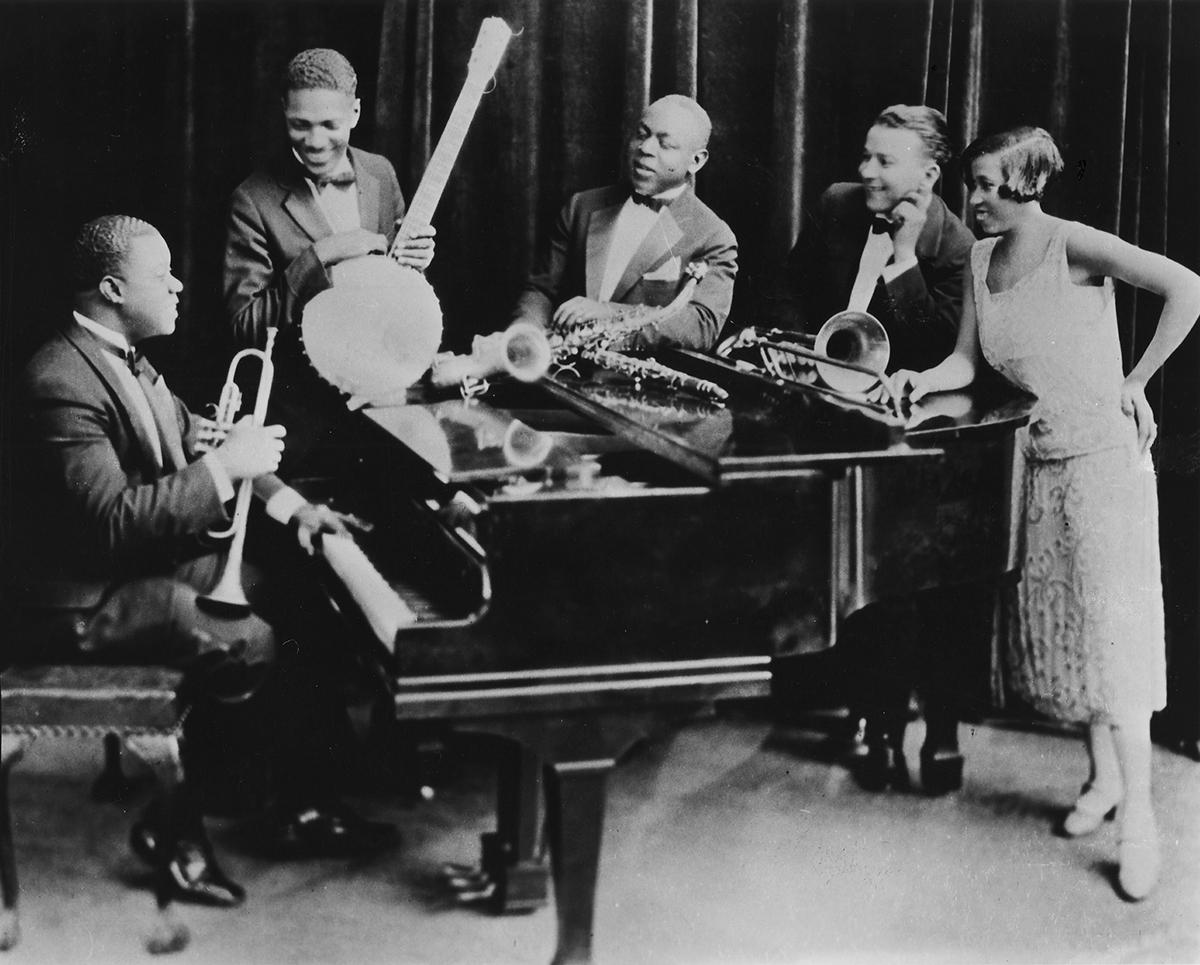
Leaving New Orleans in 1922, Armstrong played in jazz ensembles in Chicago and Harlem for 3 years. He was happy with this arrangement, as he was an apprentice musician. However, his second wife, a pianist named Lil Hardin, didn't see it that way. He was too talented for her, and she wanted her husband to form his own band. In 1925, when Armstrong was performing in New York, Hardin made a deal with Dreamland in Chicago behind her husband's back. She demanded that they announce Armstrong as "The Coolest Trumpet Player in the World." Armstrong was hesitant at first, but it turned out to be the best moment of his musical career. Just days after he returned to Chicago, OKeh Records allowed him to make his first recordings under his own name. Meanwhile, the bands in which Louis participated, the Hot Five and the Hot Seven, between 1925 and 1928 were breaking records with their exceptional brass playing. OKeh's recordings played a key role in establishing Armstrong as a legendary figure in jazz. Meanwhile, his marriage to Hardin was less successful - the couple divorced in 1938.
4. Armstrong was one of the first musicians arrested for drug possession.
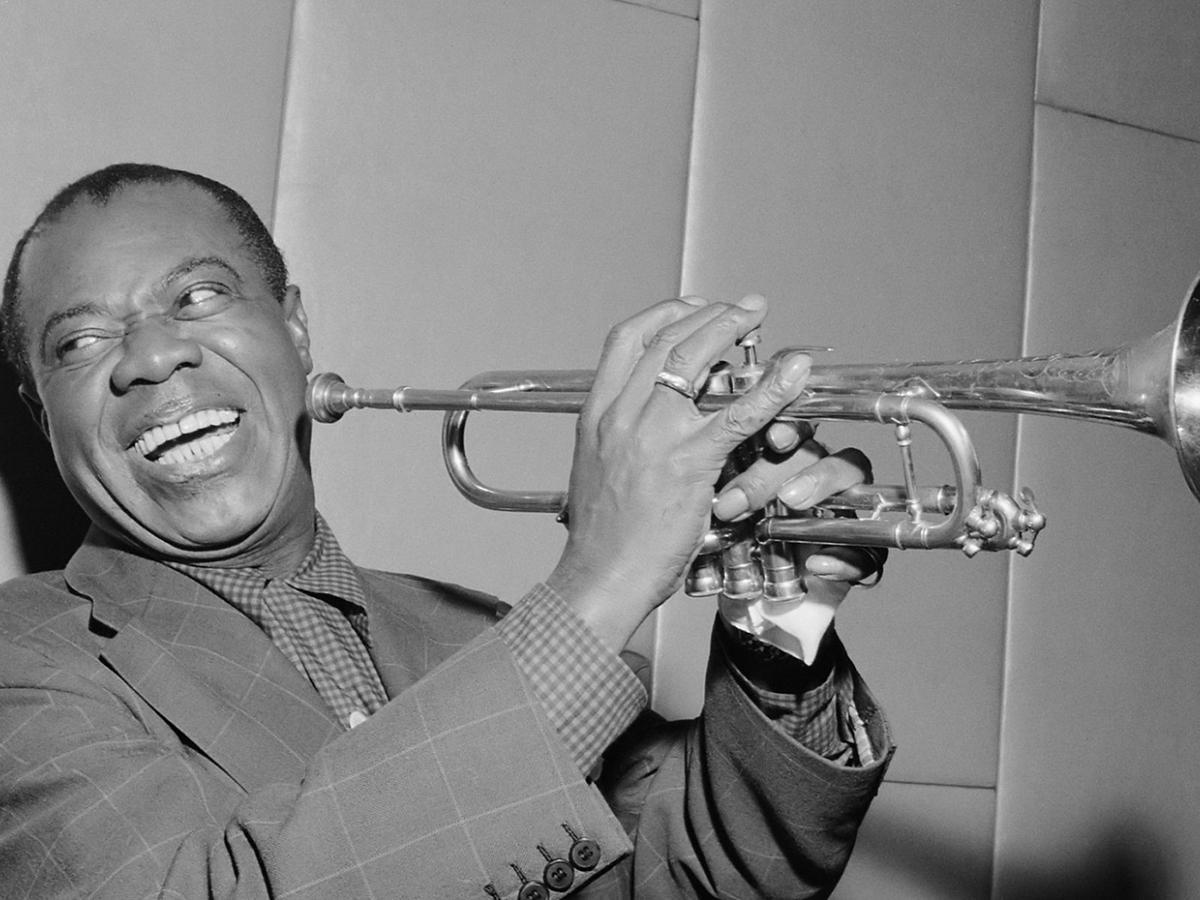
Armstrong made no secret of his fondness for marijuana, of which he said, "It's a thousand times better than whiskey!". In 1930, when the drug was not yet widely known, he and drummer Vic Burton were arrested. Police caught them with a large blunt of weed they were smoking outside a club in California. Armstrong served nine days in jail. Despite his trouble with the law, Louis continued to smoke marijuana regularly for the rest of his life.
"She makes you forget all the bad things that happen to Negroes," he once said.
5. His style of play "left an imprint" on his lips.
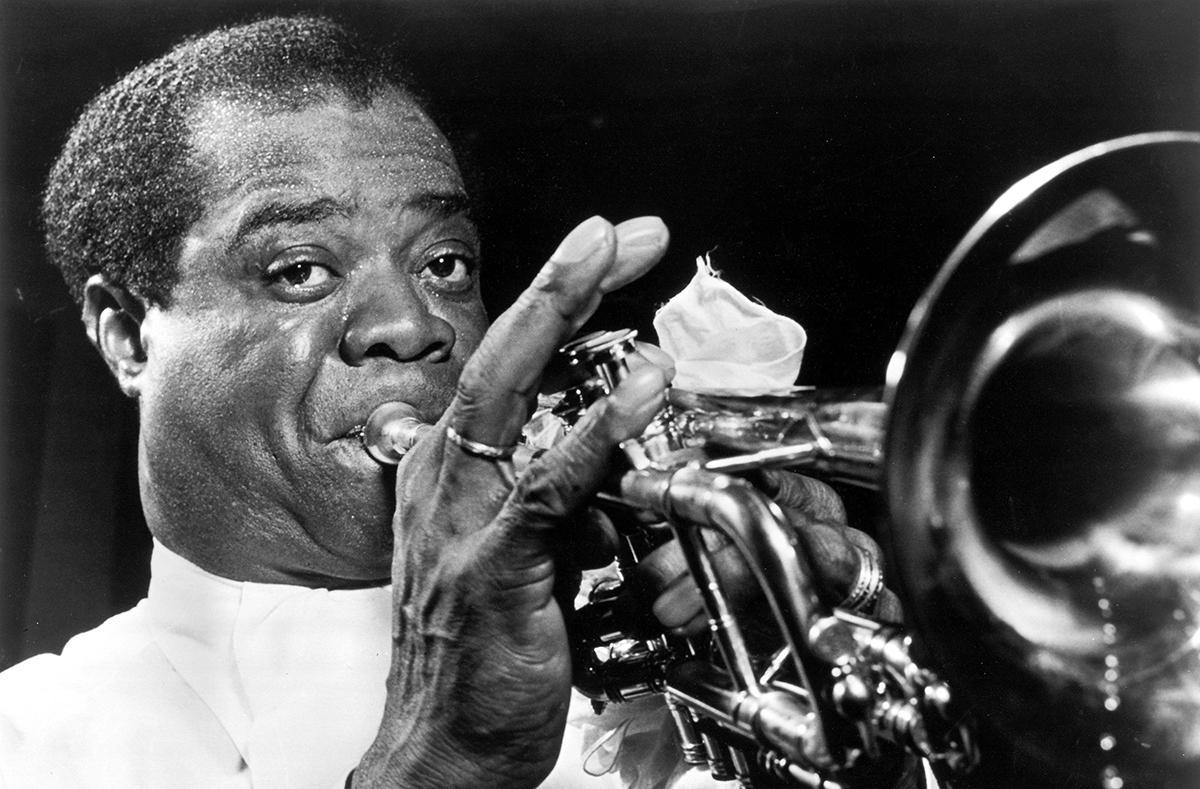
Due to a relentless touring schedule and his penchant for taking high Cs on the trumpet, Armstrong battled serious lip disease for much of his career. He played with such vigour that he would often jut his lip wide open, and the scar tissue from this simply did not have time to heal. Musicians, when they saw the condition of his lips, said they looked "as rough as a raw piece of wood can look." Armstrong treated his lips with a special balm and sometimes even removed dead tissue using a razor blade. But his way of playing never allowed him to cure his lips. He pressed down hard on his trumpet and took high notes for the rest of his life. As the years passed, this syndrome would be named after the musician - "Satchmo syndrome". Lews was popularly called Satchmo, short for Satchel Mouth.
6. Armstrong frantically criticised President Dwight D. Eisenhower for segregation.
Segregation - a policy of forced separation of a population group. Usually referred to as a form of religious and racial discrimination (separation of a group based on race or ethnicity). Source: Wikipedia.
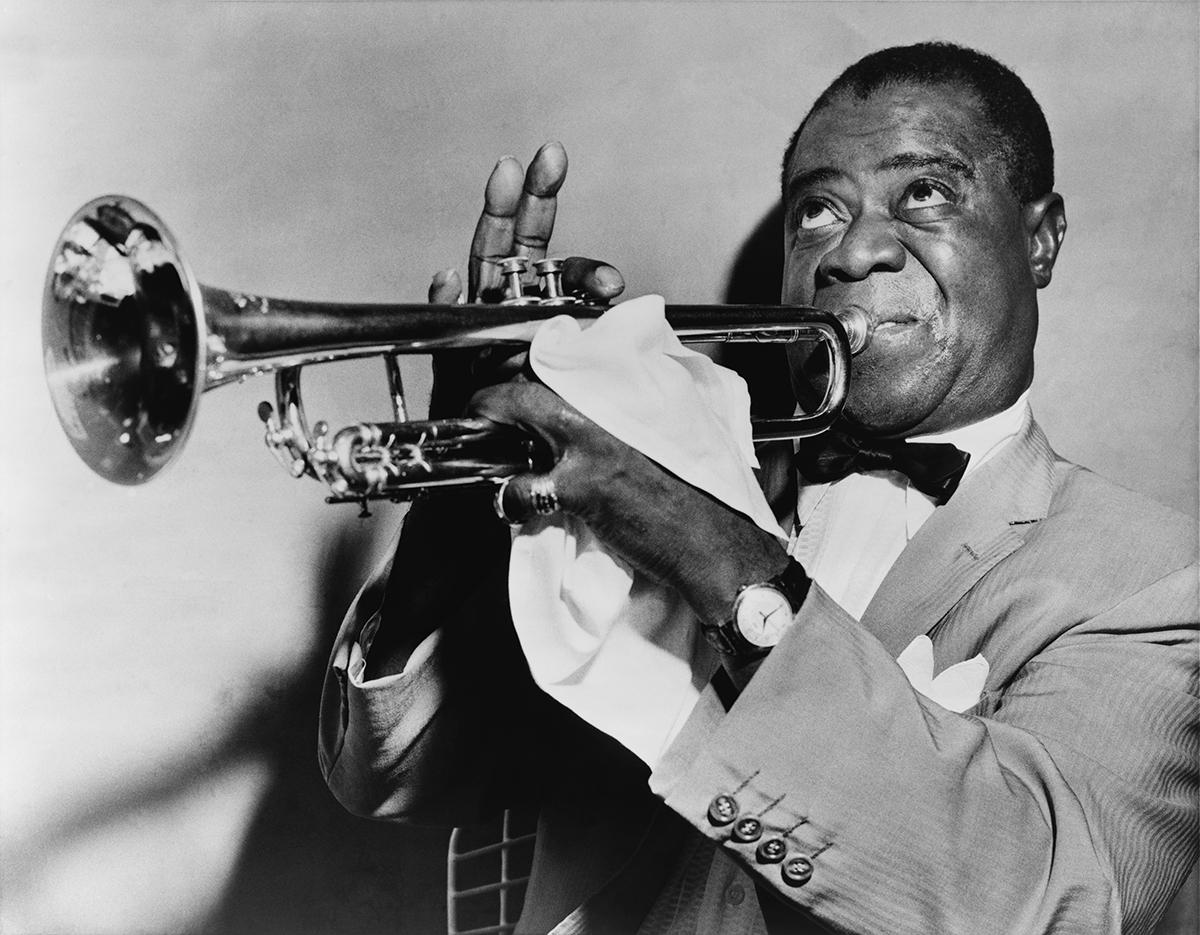
Armstrong's reluctance to speak out against racism was a frequent point of contention among the entertainer's black colleagues, some of whom even branded him "Uncle Tom". In 1957, however, he let his feelings come out and criticised segregation to the hilt. At the time, a group of black students known as the "Little Rock Nine" were prevented from attending an all-white high school in Arkansas. Asked about the crisis in an interview, Armstrong said, "The government can go to hell for the way they treat my people in the South." He added that President Dwight D. Eisenhower was a "duplicitous politician." And the fact that he hasn't spoken out on the issue says he has "no balls either." Afterwards, the musician announced that he would no longer play on the Soviet Union tour. The tour was sponsored by the US government. These remarks caused a media sensation. Some whites even called for a boycott of the trumpeter's show. The conflict reached a new level when President Eisenhower sent soldiers into Little Rock schools to end segregation.
"I am experiencing this situation as keenly as any other Negro," Armstrong later said of his decision to speak out. "I think I have a right to speak out and cheer for something that directly affects me."
7. He served as a "musical ambassador" for the U.S. State Department.
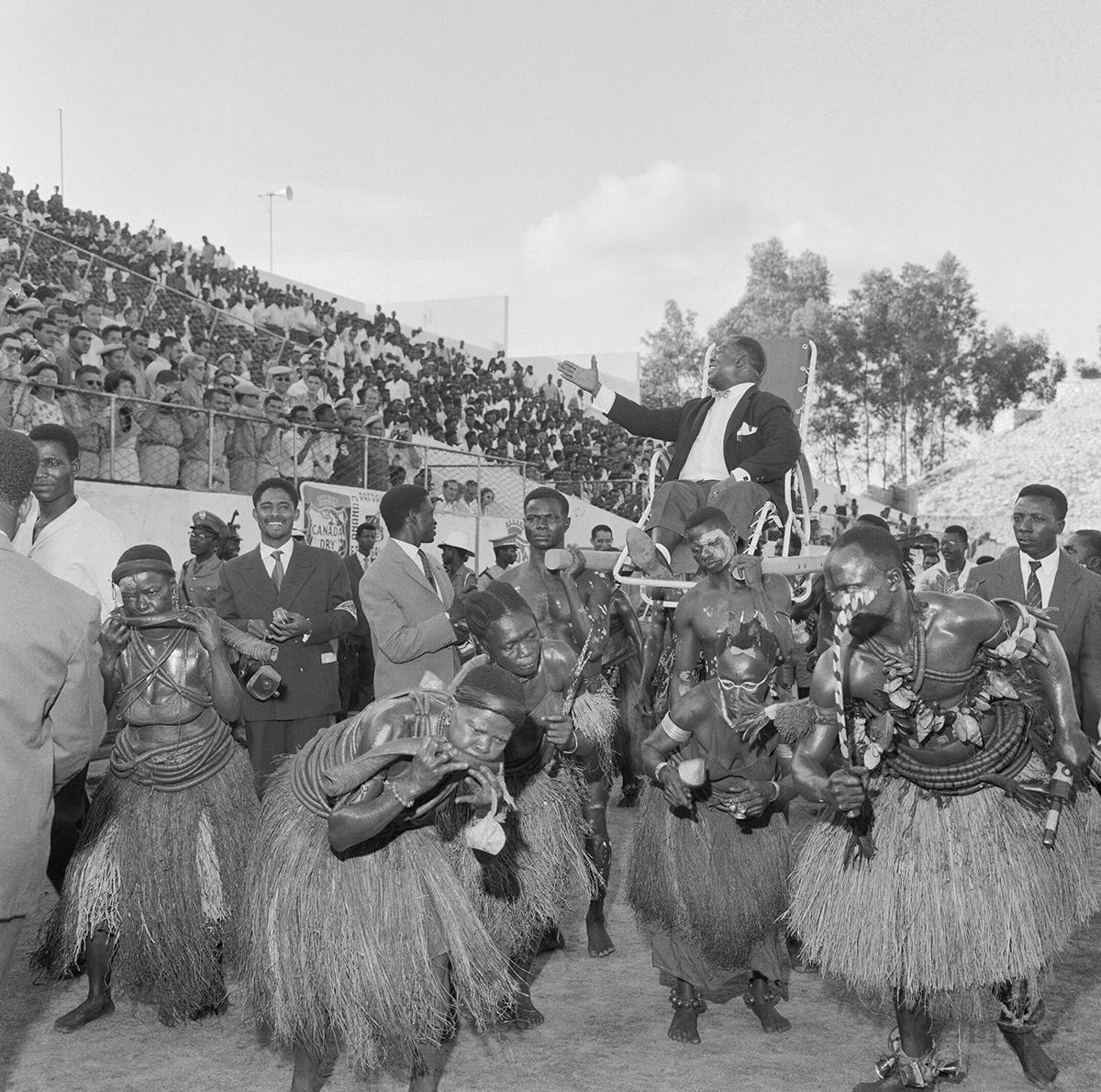
At the height of the Cold War in the late 50s, the US State Department developed a programme to send jazz musicians and other entertainers on goodwill tours to improve America's image abroad. Armstrong was already known as "Ambassador Satch" for his concerts in remote corners of the globe, but in 1960 he became an official cultural diplomat after he went on a three-month trip across Africa organised by the State Department. Trumpet and his All-Star band began taking the continent by storm.
"In Accra, Ghana, 100,000 locals joined a frenzied demonstration when he began blasting his horn," the New York Times would later write, "In Leopoldville, tribesmen painted themselves ochre and violet and then carried him into the city's stadium on a tarpaulin throne."
One of the highlights of Armstrong's popularity came during his stopover in Congo's Katanga province, where the two divided sides of the crisis declared a one-day truce to watch him perform magic. He would later joke that he had succeeded in stopping a civil war.
8. At the age of 62, Armstrong surpassed The Beatles in popularity.
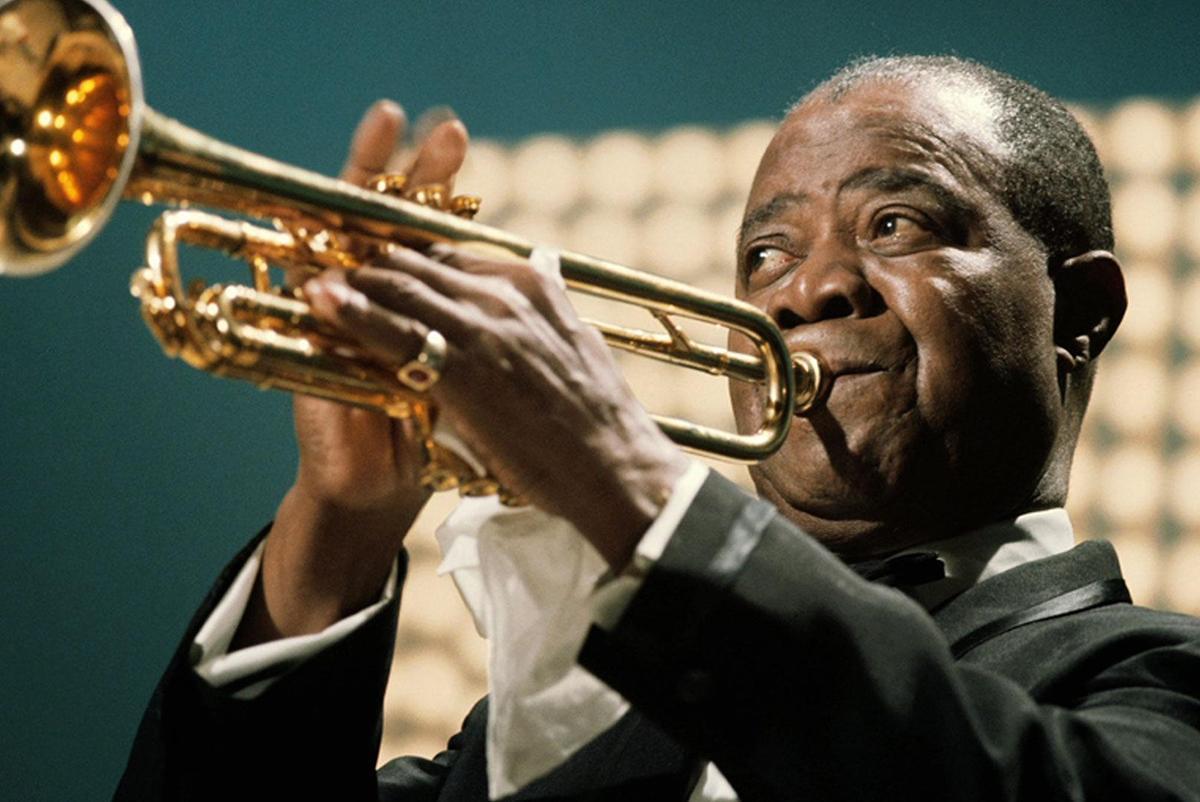
In late 1963, Armstrong and his All-Star ensemble recorded the title track for a new musical called "Hello, Dolly!". The trumpeter didn't have high hopes for the tune, but when the show debuted on Broadway the following year, it became an instant hit. By May, the composition "Hello, Dolly!" had soared to the top of the charts, displacing two songs by The Beatles that were at the height of their popularity. At the age of 62, Armstrong became the oldest musician in American history to reach number one on all the charts.
9. The song "What a Wonderful World" was not a hit during his lifetime.
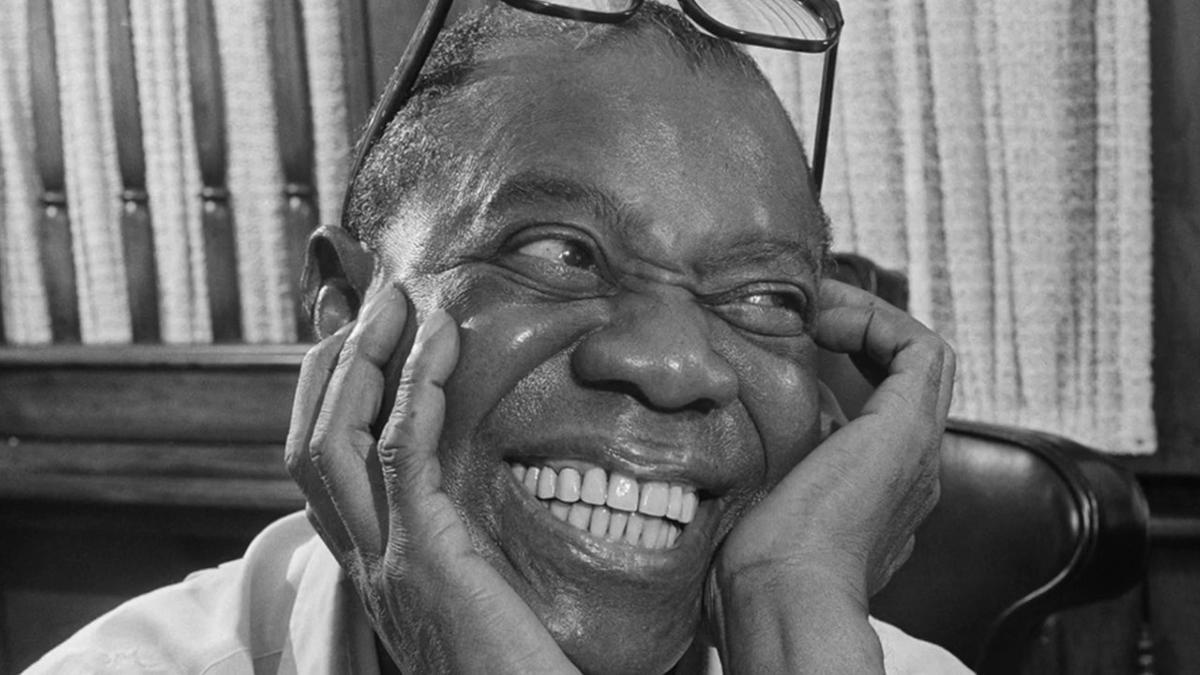
Armstrong is widely known for his velvet ballad "What a Wonderful World," which he recorded in 1967, just four years before his death. But while the song did well overseas, it wasn't popular in the United States and slipped under the radar when it came out. According to Armstrong biographer Terry Teachout, "What a Wonderful World" was lost to Americans until 1987. That year, the composition was included on the soundtrack to Robin Williams' film Good Morning, Vietnam.
It was then re-released and reached the honourable number 33 spot on the Billboard charts, and he has been considered Armstrong's main theme ever since.
